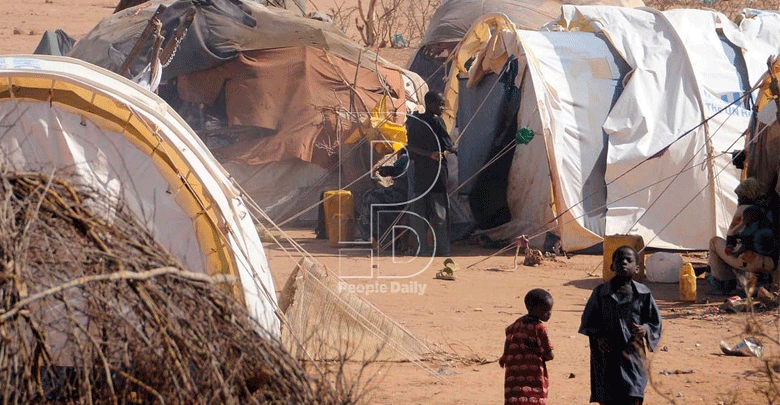Uncertainty over closure of camps as order lapses

The government has remained tightlipped over the closure of two refugee camps that host thousands of refugees from neighbouring Somalia, hours before the 14-day ultimatum given lapsed.
The two refugee camps, which include Dadaab and Kakuma host more than 410,000 people.
Yesterday, various government agencies declined to give information on how the exercise will be carried out.
While the Ministry of Foreign Affairs (MFA) said the matter lay squarely with the Interior ministry which issued the directive, officials from Interior ministry declined to respond to our calls and messages regarding the matter.
“These matters are handled by the Ministry of Interior. It is they who issued the ultimatum,” said Principal Secretary in the Ministry of Foreign Affairs Amb Kamau Macharia.
Government spokesperson Cyrus Oguna maintained that the 14 days ultimatum was only given to the United Nations High Commissioner for Refugees (UNHCR) to give a detailed plan on how it intends to move the refugees.
“What I know is that the 14 days ultimatum was not given to the refugees but to UNHCR to respond to the matter.
As of now, I wouldn’t know whether the UNHCR has responded because if it were to do so, it would write directly to the Ministry of Interior,” he said.
The Parliamentary Committee on Administration and National Security led by the vice chair and Wajir Woman Rep Fatuma Gedi said the Interior Ministry has never engaged them on the said matter.
Their sentiments came on the day Amnesty International opposed the closure of the two camps saying enforcing such a decision without having an orderly plan would lead to a humanitarian disaster.
Amnesty International Kenya executive director Irungu Houghton said the closure of the two camps is not a priority as there is no evidence of an escalated security risk arising from the camps in April 2021.
“Closure of Dadaab and Kakuma camps without an orderly approach that respects refugee rights invites a humanitarian disaster within the global Covid-19 pandemic,” said Houghton.
Rather than persecuting refugees, Houghton said the Government should use its influence at the UN Security Council to demand that the international community shoulder its fair share of the responsibility to protect refugees.
Sanctuary nation
According to him, instead of a rushed decampment programme, the Government of Kenya and UNHCR should consider reviewing the encampment approach in line with regional and international best practices.
“The Government of Kenya must not abandon its history as a sanctuary nation in the middle of a pandemic or a diplomatic dispute with the Government of Somalia.
Instead, it must use its international leadership on the UN Security Council to advocate for more resources and opportunities for both host nations and refugees,” he said.
In a statement sent to newsrooms, Houghton further opposed the closure of the camps saying circumstances within the region had not improved for most refugees to safely return hone nor have other countries come forward to resettle them.
“Closure of Dadaab and Kakuma camps without an orderly approach that respects refugee rights invites a humanitarian disaster in the global Covid-19 pandemic,” added Houghton.
Garissa Township MP Aden Duale on his part said the closure of the camp cannot be successful if the government has no clear plans of how it intends to carry out the exercise.
Interior Cabinet secretary Fred Matiang’i gave UNHCR a 14-day ultimatum to ensure closure of the facilities, failing which it plans to transport the refugees to the border with Somalia.
“We must strike a balance between Kenya’s international obligations and her domestic duty. We do have a domestic responsibility to protect Kenyans,” said Matiang’í.
Kenya’s move comes as relations with Somalia are worsening following a maritime boundary dispute that stems from a disagreement over which direction their border extends into the Indian Ocean.
Somalia argues its maritime boundary should run in the same direction as the southeasterly path of the country’s land border while Kenya claims the border should take a roughly 45-degree turn at the shoreline and run in a latitudinal line.
Kenya says the push to have the two camps closed is due to national security threats posed by some of the refugees, including past terror attacks that have been linked to accomplices of the Somali-based al-Shabaab militant group in the camps.
This is the second attempt by the government to have the camps closed and refugees repatriated.
Interestingly, only a paltry 14,000 refugees have been repatriated by April 2016. Kenya set another timeline for the closure of the Dadaab refugee complex, by November 30, 2016, which was not achieved.















